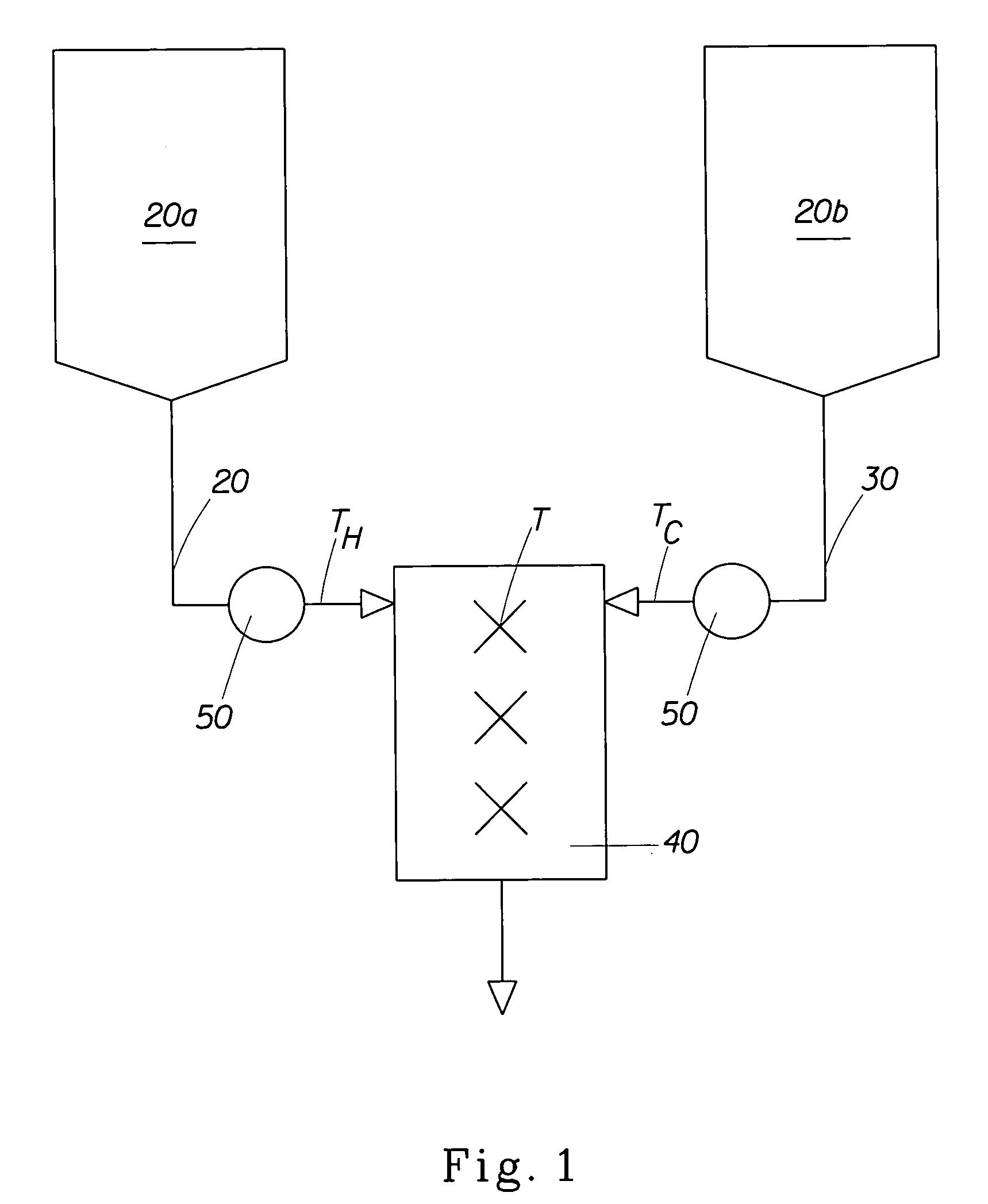Direct contact quench crystallization process and cosmetic products produced thereby
a crystallization process and direct contact technology, applied in the direction of heat treatment apparatus, impression caps, applications, etc., can solve the problems of low residue performance, little or no visible residue, limitations of conventional processes, etc., and achieve the effect of reducing the capital cos
- Summary
- Abstract
- Description
- Claims
- Application Information
AI Technical Summary
Benefits of technology
Problems solved by technology
Method used
Image
Examples
Embodiment Construction
[0026]The term “anhydrous” as used herein with respect to the product of the present invention means that the antiperspirant stick composition of the present invention, and the essential or optional components thereof are substantially free of added or free water. From a formulation standpoint, this means that the anhydrous antiperspirant stick compositions of the present invention contain less than about 5%, more specifically less than about 3%, even more specifically less than about 1%, and even more specifically zero percent, by weight of free or added water, other than the water of hydration typically associated with the particulate antiperspirant active prior to formulation.
[0027]The term “onset of crystallization” as used herein, means the temperature at which a material crystallizes from a liquid solution. All melt points and the onset of crystallization referenced herein, unless otherwise specified, are measured by the well known technique of Differential Scanning Calorimetr...
PUM
| Property | Measurement | Unit |
|---|---|---|
| temperature | aaaaa | aaaaa |
| molecular weight | aaaaa | aaaaa |
| temperature | aaaaa | aaaaa |
Abstract
Description
Claims
Application Information
 Login to View More
Login to View More - R&D
- Intellectual Property
- Life Sciences
- Materials
- Tech Scout
- Unparalleled Data Quality
- Higher Quality Content
- 60% Fewer Hallucinations
Browse by: Latest US Patents, China's latest patents, Technical Efficacy Thesaurus, Application Domain, Technology Topic, Popular Technical Reports.
© 2025 PatSnap. All rights reserved.Legal|Privacy policy|Modern Slavery Act Transparency Statement|Sitemap|About US| Contact US: help@patsnap.com

